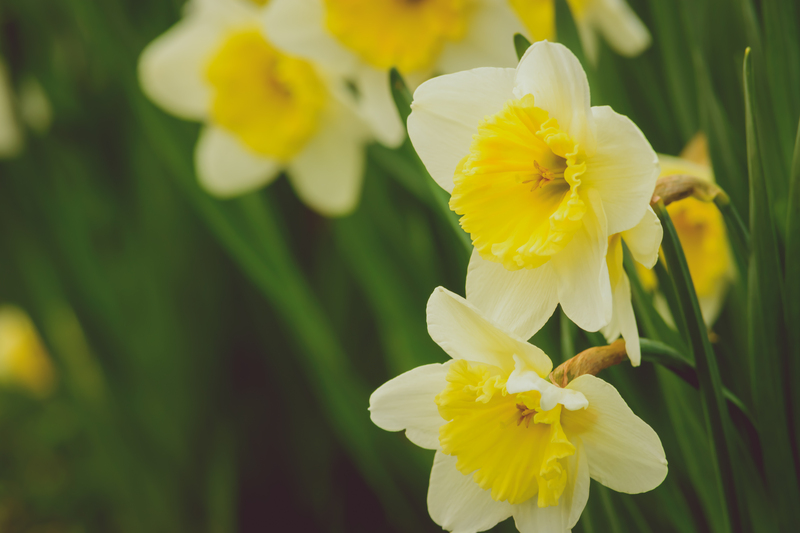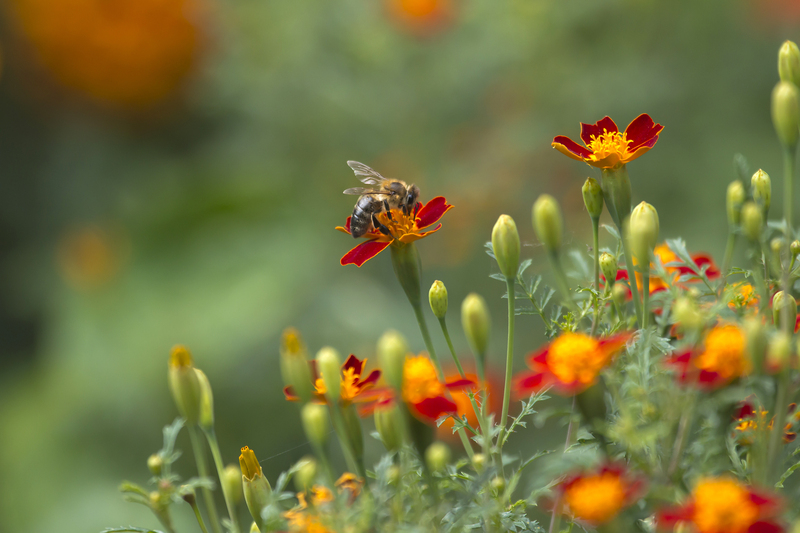Creating Tranquility with Zen Garden Design Inspirations
Posted on 17/06/2025
Creating Tranquility with Zen Garden Design Inspirations
Embracing serenity at home is no longer just a dream but an attainable reality with Zen garden design inspirations. For centuries, these tranquil landscapes have served as peaceful sanctuaries fostering mindfulness, relaxation, and deep reflection. Whether you have a spacious backyard or a cozy balcony, infusing your living space with elements of Zen gardens can dramatically improve your well-being. In this comprehensive guide, we'll explore how to create your own Zen oasis, delving into the traditions, principles, and modern adaptations of these timeless retreats.
Understanding the Philosophy Behind Zen Garden Design
The essence of Zen garden design lies in simplicity, minimalism, and natural harmony. Originating in Japanese culture, these gardens--known as Karesansui or dry landscape gardens--are deeply influenced by Zen Buddhism, aiming to inspire meditative thought and inner peace.
- Simplicity: Zen gardens distill nature down to its purest forms--rocks, gravel, sand, and a select few plants--removing distractions and fostering clarity.
- Symbolism: Every element holds deeper meaning. Rocks can symbolize mountains or islands, and raked sand emulates flowing water.
- Balance and Asymmetry: Unlike Western gardens that use symmetry, Zen gardens favor irregularity, echoing nature's imperfect beauty.
- Mindfulness: Interacting with a Zen garden, such as raking patterns in sand, provides mindful practice, grounding one in the present moment.
The Zen Principle of Wabi-Sabi
A core concept in Zen garden tranquility is wabi-sabi: appreciating imperfection and transience. Rather than hiding the age and irregularities of materials, Zen design finds beauty in them. This philosophy shapes both the aesthetics and spirit of every peaceful garden.

Key Elements of an Inspiring Zen Garden
Before diving into layout, let's unveil the essential elements that form the foundation of any Zen-inspired garden design:
- Rocks and Stones: Representing mountains, islands, or animals, stones provide structural contrast and focal points.
- Gravel or Sand: These materials are raked into patterns mimicking rippling water, symbolizing the ebb and flow of life.
- Moss: A traditional groundcover, moss brings a lush, tranquil feeling and a visual softness to stone arrangements.
- Water Elements: Although dry gardens omit actual water, some Zen spaces incorporate small ponds, stone basins, or bamboo fountains, introducing a calming soundscape.
- Plants: Minimal, thoughtfully chosen plants--such as Japanese maple, bamboo, azaleas, or evergreens--enhance texture and seasonal interest.
- Bridges and Pathways: These guide visitors gently through the space, symbolizing life's journey and transitions.
Materials that Inspire
Selecting natural, locally sourced materials is key to honoring Zen garden inspiration. Weathered stones, rough-hewn wood, and simple ceramics ground the design. Avoid flashy or artificial adornments, focusing instead on texture, patina, and raw beauty.
Step-by-Step: Designing Your Tranquil Zen Garden
Whether you're crafting a sprawling landscape or a tabletop retreat, creating a tranquil Zen garden follows a similar thoughtful process:
1. Choose the Right Location
- Backyard Zen Garden Design: Select a quiet, private part of your yard, ideally shielded from traffic and noise by fencing, hedges, or a wall.
- Balcony or Patio Zen Oasis: Even a small corner or container can serve as your tranquil escape, as long as it's uncluttered and receives some natural light.
- Indoor Zen Corners: Transform an entryway, meditation space, or even a windowsill with a contained sand garden and a few special stones.
2. Establish the Garden Layout
Zen layouts tend to follow organic patterns rather than geometric grids. Position large stones asymmetrically, usually in groups of three or five. Leave open spaces to evoke a feeling of "emptiness," which creates peaceful negative space.
- Main Elements: Place your largest rocks or small boulders first. These anchor the design and establish focal points.
- Flow and Movement: Arrange pathways or raked lines to gently guide the eye across the garden, avoiding straight lines.
- Layering: Add secondary stones, moss carpets, and minimalist plantings to balance the strong elements without overcrowding.
3. Incorporate Signature Features
A truly inviting Zen sanctuary draws from classic symbols:
- Karesansui (Dry Landscape): Fill spaces with fine gravel or sand, raked into swirling or straight-line patterns that evoke rivers, waves, or clouds.
- Stone Lanterns: These provide subtle visual interest and a metaphorical "light" of wisdom.
- Small Water Features: If space and resources allow, add a bamboo fountain or a simple stone basin (tsukubai) to enhance tranquility with gentle sounds.
4. Select the Plant Palette
- Evergreens: Japanese black pine, dwarf conifers, or yew evoke stability and year-round structure.
- Bamboo: Adds height and a soft, rustling sound that amplifies calm.
- Flowering Accents: Subtle blooms like azaleas or irises provide seasonal interest without overwhelming simplicity.
- Moss: Inviting a carpet of green, moss offers texture and assists with moisture retention.
Remember to leave empty spaces--referred to as "ma" in Japanese aesthetics. Emptiness is as meaningful as the objects placed within it.
5. Add Finishing Touches for Mindful Enjoyment
- Seating Area: A simple bench, flat stone, or wooden platform allows for standing or sitting in contemplation.
- Garden Accessories: Use only a handful of decorations, such as a weathered Buddha statue or a subtle wind chime, to avoid visual clutter.
- Lighting: Soft lanterns, especially solar-powered, highlight paths or reflect on water without overpowering natural shadows.
Modern Zen Garden Inspirations for Every Setting
Today's Zen gardens blend tradition with modern lifestyles. Here are some innovative Zen garden design inspirations adapted for various environments:
Small Urban Zen Gardens
- Container Zen Gardens: Use troughs, large pots, or raised beds to create miniaturized landscapes. Layer sand, arrange pebbles, and position small bonsai trees.
- Balcony Retreats: Incorporate bamboo screens for privacy, vertical moss walls, and a meditative seating nook.
- Apartment Window Zen Spaces: Set up a tabletop sand tray with tiny rakes, pebbles, and a splash of decorative gravel for instant calm.
Family-Friendly Outdoor Zen Gardens
- Kid-Minded Spaces: Choose smooth, safe stones and use larger rakes for children to draw patterns, engaging the whole family in mindful play.
- Low-Maintenance Plants: Opt for drought-tolerant groundcovers and slow-growing shrubs to keep upkeep minimal.
Zen Gardens for Meditation and Yoga
- Purpose-Built Platforms: Install a simple wooden deck or stone-paved clearing for yoga or meditation sessions surrounded by natural textures.
- Fragrant Elements: Add calming scents with lavender, jasmine, or incense burners to deepen your sensory experience.
Benefits of Embracing Zen Garden Tranquility
The advantages of cultivating a Zen-inspired garden sanctuary go far beyond aesthetics:
- Stress Reduction: Interacting with calming natural elements has been proven to lower cortisol, reduce anxiety, and enhance emotional balance.
- Mindful Living: Daily raking or tending the garden becomes a form of active meditation, grounding you in the now.
- Creative Expression: Designing and evolving your garden encourages artistic flow, self-awareness, and patience.
- Natural Connection: Immersing yourself in outdoor Zen-inspired tranquility fosters a deeper appreciation for the rhythms of nature and the seasons.
- Increased Property Value: A thoughtfully designed Zen space can boost curb appeal and create a desirable, relaxing outdoor living area.
Tips for Maintaining Your Zen Garden's Peaceful Aura
- Regular Raking: Refresh sand or gravel patterns weekly as a meditative act, erasing old designs to make space for new intentions.
- Minimal Pruning: Keep plants neat but embrace natural growth forms to reflect the effortless beauty of wabi-sabi.
- Litter-Free Zones: Gently remove fallen leaves and debris, keeping surfaces pristine yet natural.
- Seasonal Adjustments: Introduce subtle changes with the changing seasons to maintain visual interest without unnecessary clutter.
Pitfalls to Avoid in Zen Garden Design
- Overcrowding: Cluttered spaces undermine tranquility. Remember: less is more.
- Bright Colors: Limit the use of vibrant or ornate decorations that distract from the garden's calming palette.
- Artificial Features: Avoid synthetic turf, plastic ornaments, or unnatural water colors.
- Ignoring the Surroundings: Aim to integrate your Zen space with the broader landscape, respecting existing sightlines and building styles.

Get Inspired: Real-World Zen Garden Ideas
Ready to take the plunge? Draw inspiration from some best-loved design approaches that honor Zen principles while adding your personal touch:
Classic Japanese Rock Garden
- Large weathered stones stand as "islands" amid a sea of raked gravel, fringed with mossy humps.
- Minimal plants--a dwarf pine and a few ferns--offer verdant accents.
- A bamboo water spout delivers gentle drops into a shallow stone basin, echoing the soundscape of a distant mountain stream.
Contemporary Minimalist Zen Garden
- Concrete pavers float across a bed of white gravel, interspersed with sculptural agave and ornamental grasses.
- A black stone Buddha head on a low pedestal serves as the central focal point.
- At dusk, hidden LED lights cast soft, indirect glows on textured surfaces.
Tiny Space Zen Meditation Nook
- A single, broad-leafed hosta in a weathered ceramic pot sits beside a bowl of fine sand raked in concentric circles.
- Driftwood, a river stone, and a stick of incense complete the miniature retreat--proof that tranquility can flourish anywhere.
Conclusion: Craft Your Personal Sanctuary with Zen Garden Design Inspirations
Inviting tranquility through Zen garden design inspirations is more than mere landscaping--it's a mindful journey. By blending time-honored Japanese garden principles with your unique environment, you can cultivate peace, presence, and a deep connection to nature in your daily life.
Whether you seek a meditative corner or a sprawling peaceful landscape, let your Zen garden reflect harmony, simplicity, and mindful intention. As you interact with this sacred space, you'll find not only beauty but also a profound sense of well-being blossoming at home.
Start today: clear a space, gather a few stones, and let these Zen garden inspirations guide your path toward tranquility.
Latest Posts
Unlock Your Green Thumb: 9 Vital Gardening Tips for Newbies
Crafting a Magical Oasis: Designing a Child-Friendly Garden
Evergreen Climbers for Shade: Unveiling Hidden Potential
Crafting a Garden Haven for Your Little Ones
Budget-Friendly Gardening: 5 Low Maintenance Ideas for Every Home

